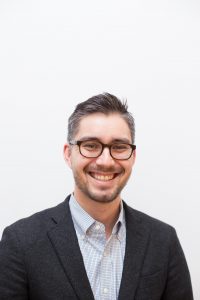Biography
Christopher Lee is a second-generation Canadian with Chinese-Surinamese and German roots. He has lived and studied on Canada’s east and west coasts, and is currently based in his hometown of Toronto.
Chris has spent much of his career working on social justice and equity issues in arts, media, disability, education, and youth sectors in both British Columbia and Ontario. Currently the Director of Programming at Inspirit Foundation — a national philanthropic organization committed to building an inclusive and pluralistic Canada — Chris leads the organization’s grantmaking programs, evaluation strategies, and social impact initiatives. He mobilizes his expertise in program design, stakeholder engagement and facilitation, and systems thinking, and draws on a range of past professional experience, including frontline social service work, leadership development, and youth-driven, cross-cultural community building.
He holds a B.A. (Hons) in Philosophy and German Literature from the University of King’s College and an M.Ed. from the University of British Columbia, where he focused on social policy and disability rights. Chris has served on a number of nonprofit boards, and currently sits on both the Grassroots Grantmakers and First Unitarian Congregation of Toronto boards.
Meeting Christopher
What is your most memorable experience from your time in the Faculty of Education at UBC?
There are two experiences that have stuck with me from my time as a Master’s student at UBC (2008-2010) in the Society, Culture, and Politics in Education (SCPE) program. One was Professor Mona Gleason’s course, “Constructing ‘Citizens’: Canada and the Educational Past.” This was the first class I ever took that interrogated the role of the residential school system in Canada and the first time I became aware of the deep historical reckoning required to address this country’s colonization and egregious exploitation of Indigenous peoples. I am not only grateful for how Professor Gleason’s class opened my eyes, but also for sparking my ongoing commitment to learning more about Indigenous communities and causes, and using both personal and professional opportunities to support pathways to reconciliation and justice.
The second experience was the “Unruly Salon” series, co-created by my advisor, Professor Leslie Roman, and Geoff McMurchy. This series brought together world-renowned disability scholars and artists to challenge ideas of ableism and who dictates cultural creation, and push audiences to rethink equity and representation through a disability lens. I remember witnessing musicians, dancers, and comedians using the power of artistic expression to speak back to oppressive systems, while signaling a way forward through truth-telling, beauty, and humour.
Where has your education from the Faculty of Education taken you in your career?
The two experiences I mentioned above have helped shape my interests, my passions, and ultimately my career. All of my work, including in my current role at Inspirit, has been informed by a core principle from the disability rights movement: “Nothing about us without us.” Too often, paternalistic “solutions,” such as residential schools and disability asylums, have resulted in grievous harm. To begin to rectify this, people who have been historically marginalized need to be listened to with humility and power needs to be ceded to them so they can lead and actively shape new solutions.
The interdisciplinary nature of the SCPE program offered excellent training in thinking critically across sectors and issues. What are the familiar patterns — and differences — that exist in our education, legal, social service, or political systems? I’ve had the privilege of working with people, nation-wide, from a variety of fields; I love being able to see the connections between them, while appreciating the cultural and regional differences across communities and sectors. This keeps my work intellectually stimulating and helps me remain responsive and alert to the complexities that arise.
Where do issues of inclusion find a place in your life or at work?
Inclusion is a central tenet and goal of my current day-to-day work with Inspirit Foundation. Inspirit has a mandate to support pluralism and anti-racism in Canada, with a specific focus on fighting Islamophobia and advancing Indigenous reconciliation. I spend the majority of my time addressing issues related to racial, ethnic, and religious discrimination and mobilizing the Foundation’s resources to support systemic change that will enable Canada to become a truly inclusive country.
During my time with Inspirit, I’ve had the privilege to work with some incredible people and organizations like imagineNATIVE, which has been an groundbreaking platform for Indigenous cinema over the last twenty years, and the Silk Road Institute, a newer multi-disciplinary arts organization out of Montreal dedicated to amplifying diverse Muslim voices and stories.
I volunteer on nonprofit boards, including one focused on pushing the philanthropic sector in the U.S. and Canada to develop inclusive and innovative funding practices that support community-led solutions. I am also active in my faith community, which reminds me that the work of inclusion and community-building is always multigenerational and, in many ways, a daily spiritual practice.
Do you have any words of wisdom for current students? Any advice for newly graduated folks?
A mentor of mine once said, “Find a big problem to work on that will keep you busy for years!” To that I would add, stay curious. The big world problems have many angles and probably many different answers. Along the way, keep asking questions, strive to listen to people with care, and remain humble. It’s a gift to hear other people’s stories.
